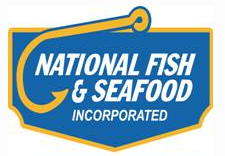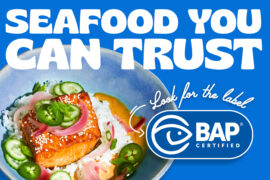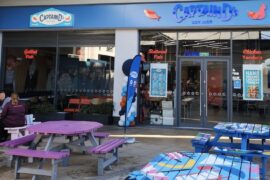In the wake of ongoing accusations of human rights violations in shrimp pre-processing facilities in Thailand, the most recent of which appeared in an Associated Press exposé widely circulated earlier this week, frozen seafood importers dedicated to ethical sourcing and fair labor practices are dialing up communications and public relations efforts to assure customers and end users that their raw materials and finished products have been properly procured.
One such company is Gloucester, Massachusetts, USA-based National Fish & Seafood (NFS). As a member of the Hong Kong-headquartered Pacific Andes Group, it has been fully engaged on this issue for years with Thai government officials, the US State Department, the Thai Frozen Food Association (TFFA), the International Labour Organization (ILO), and the NGO community to establish and expand social responsibility programs.
NFS is a major supplier of seafood to retailers, distributors, institutional foodservice and restaurant chains across the United States. Every year it sources, processes and distributes more than 35,000 tons of frozen raw fish fillets and shrimp, cooked shrimp and breaded fish and seafood products, including 11,500 tons under its National Fish, Matlaw’s and Schooner brands.
“Our commitment to social responsibility has been long-standing because it is the right way to do business. Since these issues came to light several years ago, we have not bought wild-caught fish or shrimp in Thailand. And we will not until we are satisfied that we can develop an ethically responsible supply chain,” said Jeff Sedacca, president, of NFS’s shrimp division.
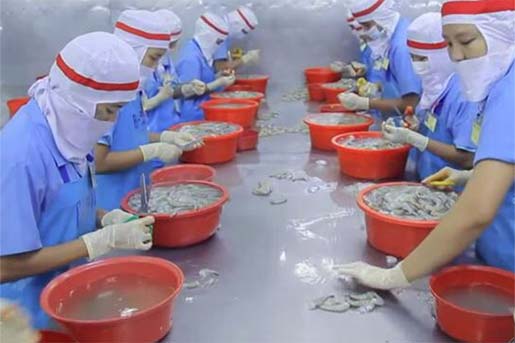 National Fish & Seafood imports shrimp and other seafood processed exclusively from audited plants in full compliance with fair labor practices and ethical sourcing practices, such as this facility.
National Fish & Seafood imports shrimp and other seafood processed exclusively from audited plants in full compliance with fair labor practices and ethical sourcing practices, such as this facility.
In 2010 National Fish was the first US importer to ban the use of shrimp peeling sheds located outside processing plants within its procurement network, since such facilities are not included in plant audits, allowing for the potential use of illegal and underage labor. All shrimp processed for and imported by NFS have remained in the care, custody and control of the audited processor through the entire production process, and the company requires suppliers to provide it with verifiable documentation on responsible farming practices and labor conditions.
National Fish & Seafood has been a leading force in implementation of farm and plant certification through the Global Aquaculture Alliance’s Best Aquaculture Practices (BAP) certification scheme, which contains a social responsibility component benchmarked against the international Global Social Compliance Programme. Since its inception, NFS has hosted hundreds of hours of training seminars throughout Southeast Asia to teach farmers and processors to meet the internationally recognized certification requirements.
“We closely monitor social compliance at these facilities and require regular unannounced ethical sourcing audits,” said Sedacca.
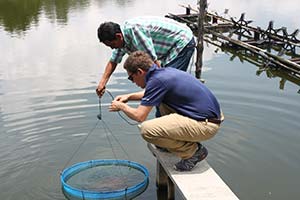 James Baros, NFS’s aquaculture and sustainability manger, inspects a shrimp farm in Asia.James Baros, the company’s aquaculture and sustainability manager, added: “Earlier this year, we helped our Thai supplier to build a feed mill to supply farms contracted for National Fish & Seafood production. This undertaking successfully further secured our supply chain, giving us increased control over all inputs to ensure legality and fair labor practices of our fishmeal suppliers and affiliated fishing vessels.”
James Baros, NFS’s aquaculture and sustainability manger, inspects a shrimp farm in Asia.James Baros, the company’s aquaculture and sustainability manager, added: “Earlier this year, we helped our Thai supplier to build a feed mill to supply farms contracted for National Fish & Seafood production. This undertaking successfully further secured our supply chain, giving us increased control over all inputs to ensure legality and fair labor practices of our fishmeal suppliers and affiliated fishing vessels.”
All purchases are accompanied by the Marine Catch Purchasing Document, which demonstrates traceability, and sources include both IFFO-certified (International Fishmeal and Fish Oil Organisation) Peruvian fishmeal and tuna by-product fishmeal.
Baros led National Fish & Seafood in joining the Thai Shrimp Sustainable Supply Chain Task Force (Task Force) in 2015, formed to address illegal, unreported and unregulated fisheries and labor abuse in Thai shrimp supply chains. Comprised of key industry stakeholders drawn from seafood processing, importing, and retail businesses, the Task Force is working to develop robust, actionable solutions focused on three objectives:
- Implement Track & Trace systems with international verification
- Drive Thai Port Codes of Conduct with international recognition
- Drive Fishery Improvement Projects – Gulf of Thailand and Andaman Sea
In addition, NFS has begun implementing advanced traceability software, Farmforce and SourceTrace, at the farm level to tap into the benefits of a cloud-based platform so farmers, processors, importers and buyers can all benefit from a transparent, traceable supply chain ensuring social and environmental compliance with international standards.
“We will continue our work to engage farmers, feed mills, hatcheries, processors, NGOs, and local government agencies, to ensure full transparency and social welfare compliance through each step of the production cycle and provide a guarantee of quality and sustainability to our customers,” concluded Sedacca.

